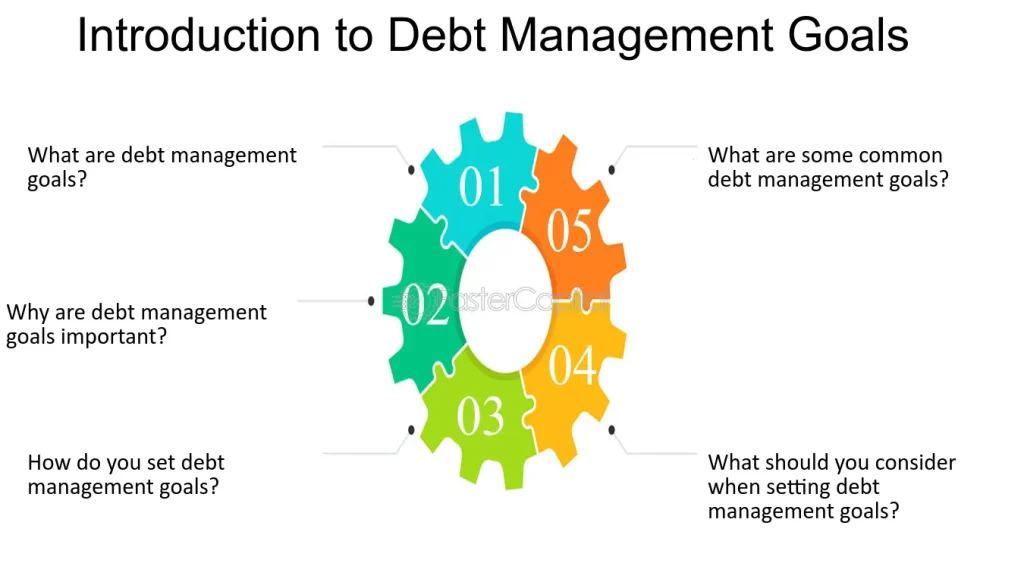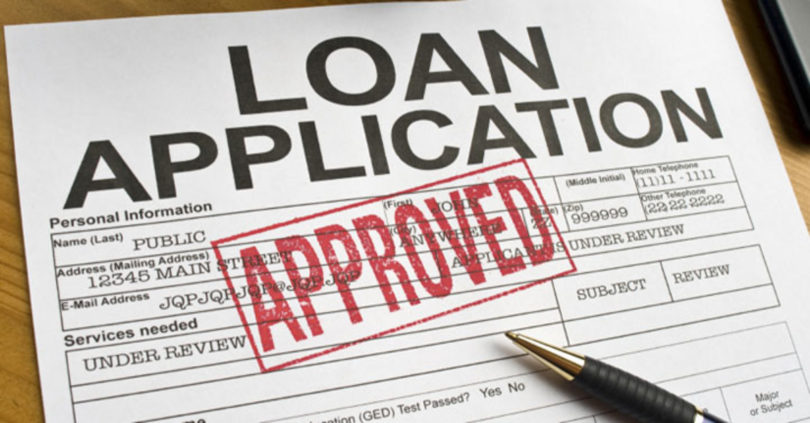Debt management is a way of controlling your debt by the help of financial planning. Debt can feel like a heavy burden, but with the right strategies, you can manage your debt and your money and create room for a brighter financial future. In this guide, we’ll explore the practical tips and techniques to effectively manage debt and overcome financial stress.
Whether you’re dealing with credit card debt, student loans, or medical bills, this comprehensive guide will provide you with the tools you need to regain control of your finances and achieve peace of mind.
What Is Debt Management

Debt management means figuring out how to handle and lower the amount of money you owe. It’s like making a plan to pay off your debts step by step while trying to pay as little extra money (interest) as possible.
Imagine you have a bunch of bills to pay, like for your credit card, school loans, or maybe some medical bills. Debt management is about making a smart plan to deal with all these bills so you can feel more in control of your money. It’s like taking small but important steps to get rid of your debts and feel better about your finances.
To manage your debts well, you need to think about your budget, decide which bills to pay first (especially the ones with high interest rates), and maybe even talk to the people you owe money to see if they can help you out. It’s all about being smart with your money and taking charge of your financial future.
Understanding Debt
Debt is like carrying a heavy load on your shoulders. It’s money you owe to someone else, whether it’s a loan from a bank, credit card debt, or even borrowing cash from friends or family.
Imagine borrowing money to buy something now, with a promise to pay it back later. That’s what debt is all about. Whether it’s paying for school fees, getting a car, or using your credit card for everyday purchases, debt can grow quickly if you’re not careful with your money.
It’s essential to understand debt because it affects your financial health and future. By managing your debts wisely, you can lighten the burden and work towards a brighter financial future.
Types of Debt

Credit Card Debt
Have you ever used your credit card to buy something you couldn’t afford right away? That’s credit card debt. When you don’t pay off your full balance each month, you end up owing even more because of interest charges.
Example: Let’s say you buy a new TV for $500 using your credit card. If you only make the minimum payments and the interest rate is around 20%, you might end up paying much more than $500 in the long run.
Loans
Loans come in different shapes and sizes, such as personal loans, student loans, or mortgages. When you take out a loan, you borrow money from a lender and agree to pay it back over time, usually with interest.
Example: Imagine you need to pay for college, so you take out a student loan. After you graduate, you start paying back the loan, but the interest adds up, and you realize you owe a lot more than what you originally borrowed.
Mortgages
If you’ve ever bought a house, chances are you’ve heard of a mortgage. A mortgage is a loan specifically used to purchase a home. It’s a big loan that you pay back over many years, usually several decades.
Example: Let’s say you want to buy a house, but you don’t have enough money to pay for it upfront. So, you take out a mortgage from a bank. Over the next 30 years, you make monthly payments to pay off the loan and own your home outright.
Medical Bills
Medical debt comes from healthcare expenses that your insurance doesn’t cover. It can pile up quickly if you have a serious illness or injury.
Example: You get sick and need to go to the hospital. Even with insurance, you still have to pay for things like co-pays, deductibles, and treatments. If the bills add up and you can’t afford to pay them all at once, you might end up with medical debt.
Importance of Debt Management

Why does debt management matter? It’s like steering a ship through stormy seas – without a plan, you might end up shipwrecked. Effective debt management is crucial for your financial well-being.
Picture this: You’re juggling multiple bills, dodging calls from creditors, and losing sleep over your mounting debt. Sounds familiar? Debt management can help you:
Reduce Stress
Constantly worrying about debt can take a toll on your mental and emotional health. By creating a plan to tackle your debt, you can regain control and peace of mind.
Example: Setting up a budget and sticking to it can help you track your expenses and avoid overspending.
Save Money
Interest charges and late fees can eat away at your hard-earned cash. With effective debt management, you can pay off debt faster and save money on interest.
Example: Paying more than the minimum payment on your credit card each month can help you chip away at the balance and save on interest charges.
Improve Credit Score
Your credit score plays a crucial role in your financial life, impacting your ability to secure loans, rent an apartment, or even get a job. By managing your debt responsibly, you can improve your credit score over time.
Example: Making timely payments and keeping your credit card balances low can positively impact your credit score and demonstrate financial responsibility to lenders.
Achieve Financial Goals
Whether you dream of buying a home, starting a business, or traveling the world, effective debt management is essential for achieving your long-term financial goals. By freeing up resources and reducing financial burdens, you can take significant steps toward realizing your aspirations.
Example: Allocating extra funds towards debt repayment each month can accelerate your progress towards achieving financial milestones and fulfilling your dreams.
Build Financial Resilience
Life is full of unexpected twists and turns, from medical emergencies to job loss. By managing your debt wisely and building up savings, you can strengthen your financial resilience and weather financial challenges more effectively.
Example: Creating an emergency fund can provide a financial safety net during times of uncertainty, allowing you to cover unexpected expenses without resorting to additional borrowing.
Secure Financial Freedom
Ultimately, debt management is about reclaiming control of your financial destiny and paving the way for a brighter future. By taking proactive steps to manage your debt, you can break free from the cycle of financial stress and uncertainty, and enjoy greater freedom and flexibility in your life.
Example: Implementing a debt payoff plan and sticking to it diligently can empower you to achieve financial independence and live life on your own terms, free from the constraints of debt.
4 Powerful Debt Management Strategies
Are you tired of feeling overwhelmed by your finances and weighed down by debt? It’s time to take control of your financial future and embark on a journey towards financial freedom. Let’s explore a range of practical strategies that are designed to empower you with the knowledge and tools needed to navigate your financial landscape with confidence and expertise.
By implementing these proven dept management strategies, you can develop a clear plan for managing your debt effectively and achieving your financial goals. Whether you’re struggling with credit card debt, student loans, or medical bills, there are steps you can take to regain control of your finances and pave the way for a brighter financial future. Let’s dive in and discover the key principles and techniques that will empower you to conquer your debt and build a solid foundation for long-term financial success.
Creating a Budget
Think of a budget as your financial plan to guide you through your spending habits and keeps you on track toward your goals.
Track Your Income and Expenses
Start by listing all the money you earn and every penny you spend each month. This includes everything from rent and bills to groceries and entertainment. Use budgeting tools or apps to categorize your expenses, helping you see where your money is going and where you can cut back.
Identify Areas to Cut Back
Once you’ve tracked your expenses, look for areas where you can trim unnecessary spending. Small changes, like cooking at home instead of eating out, can add up to big savings over time. Review your expenses regularly to ensure you’re sticking to your budget and making progress toward your financial goals.
Snowball vs. Avalanche Method
When it comes to paying off debt, there are two main strategies: the snowball and avalanche methods.
Snowball Method
With this approach, you focus on paying off your smallest debts first while making minimum payments on larger debts. This method can provide a psychological boost as you quickly eliminate smaller debts, giving you the momentum to tackle larger ones.
Avalanche Method
This method prioritizes debts with the highest interest rates, helping you save money on interest charges in the long run. By tackling high-interest debt first, you can reduce the total amount you pay over time and become debt-free faster.
Consolidating Debt
Debt consolidation can simplify your repayment process by combining multiple debts into a single loan with a lower interest rate.
Balance Transfer
Transfer high-interest credit card balances to a card with a lower introductory rate, reducing the amount of interest you pay. Be mindful of any balance transfer fees and ensure you can pay off the balance before the introductory period ends to avoid high interest charges.
Personal Loan
Take out a personal loan to consolidate high-interest debts into one manageable monthly payment with a fixed interest rate. This approach can simplify your finances and potentially save you money on interest over time. Compare loan terms and interest rates from multiple lenders to find the best option for your situation.
Seeking Professional Help
If you’re feeling overwhelmed by debt, don’t hesitate to seek assistance from professionals who can offer expert guidance and support.
Credit Counseling
These agencies can help you create a personalized debt repayment plan, negotiate with creditors, and provide financial education. A credit counselor can assess your financial situation, identify areas for improvement, and help you develop a plan to achieve your financial goals.
Financial Advisor
A financial advisor can offer tailored advice on debt management strategies, investment opportunities, and long-term financial planning. They can help you create a comprehensive financial plan aligned with your goals and aspirations, providing guidance on budgeting, saving, and investing for the future.
By implementing these strategies and seeking help when needed, you can take control of your debt and pave the way for a more secure financial future. Don’t let debt hold you back – with careful planning and determination, you can achieve financial freedom and peace of mind.
Will debt management strategies affect my credit score?
Debt management strategies such as consolidating debt or negotiating with creditors may temporarily impact your credit score, but over time, responsible debt repayment can improve your creditworthiness.
Can I negotiate with creditors on my own?
Yes, you can negotiate with creditors on your own by contacting them directly to discuss repayment options or hardship programs.
How long does it take to become debt-free?
The time it takes to become debt-free depends on various factors, including the amount of debt owed, interest rates, and your ability to make consistent payments. Developing a realistic debt repayment plan can help you achieve your goals over time.
What should I do if I can’t afford my debt payments?
if you’re unable to afford your debt payments, consider reaching out to creditors to discuss alternative payment arrangements or seek assistance from a credit counseling agency.
Can debt management help me achieve financial freedom?
Yes, by effectively managing debt and adopting sound financial habits, you can pave the way for financial freedom and achieve your long-term financial goals.
Is debt consolidation a good option for me?
Debt consolidation can be beneficial if it allows you to simplify your payments and secure a lower interest rate, but it’s essential to weigh the pros and cons and ensure you can afford the new loan terms.
Conclusion
Managing debt is a crucial aspect of maintaining financial stability and achieving long-term prosperity. By creating a budget, prioritizing high-interest debt, exploring consolidation options, negotiating with creditors, and seeking professional guidance when needed, you can take control of your finances and work towards a debt-free future.
Remember, effective debt management requires patience, discipline, and a willingness to adapt to changing circumstances. With dedication and perseverance, you can overcome financial challenges and enjoy the peace of mind that comes with financial freedom. Start your journey to debt management today and take the first step towards a brighter financial future.
In summary, effective Debt management is essential for achieving financial freedom. By implementing strategies such as creating a budget, prioritizing high-interest debt, and exploring consolidation options, you can regain control of your finances and pave the way for a brighter future. Don’t let debt hold you back ,take charge of your finances today!

